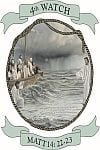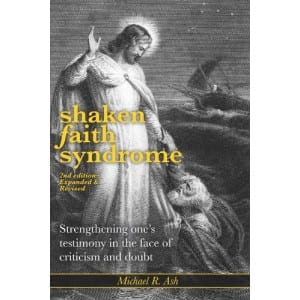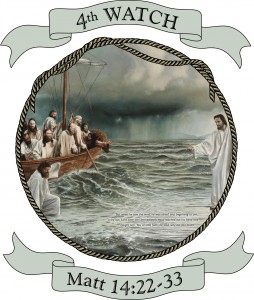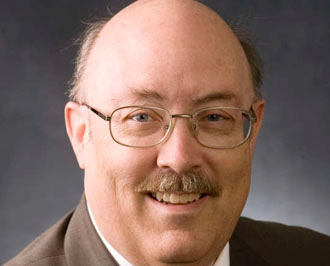In 1897, Mark Twain’s cousin became seriously ill. Some people confused the two men, leading Mark Twain to remark a few weeks later, “The report of my death was an exaggeration.” Similarly, it may be that as long as people have been calling themselves “anti-Mormons,” critics of the Church have been predicting the demise of the Church and have been pronouncing efforts to defend it as futile. All such declarations of impending doom have proven, at the very least, to be exaggerated.
One such example is in the occasional rumblings from some quarters that “the Brethren” or the institutional Church is at odds with lay members who engage in a reasoned defense of the faith, or “apologetics.” Over the past year, the Neal A. Maxwell Institute (formerly known as FARMS) has adopted a more secular approach to the academic discipline of Mormon Studies, and has moved away from an overt defense of the Church. Some have wondered if this indicates that the “institutional Church” is distancing itself from a reasoned defense of the faith. Indeed, there are some who argue that “the brethren” want nothing to do with apologetics and surmise that President Uchtdorf’s talk in this year’s October General Conference must have come as a severe blow to Mormon apologists.
While it is true that what was once known as the FARMS Review has morphed into an annual journal with a secular focus, rather than a faith-building focus, the Interpreter: A Journal of Mormon Scripture has taken its place and is accessible, technologically advanced, and prolific. It seems that the changes at the Maxwell Institute have simultaneously created a new base for the emerging secular discipline of “Mormon Studies” while at the same time serving as the impetus for revitalized interest in publishing works in a peer-reviewed, academic journal that provide a reasoned defense of the faith.
With regard to whether or not “the Brethren” are distancing themselves from efforts to directly defend the Church against charges of its critics, Elder D. Todd Christofferson spoke in September at BYU-Idaho and not only bore his testimony of Joseph Smith, but also offered many reason-based responses to attacks against the Church. In doing so, he cited publications by FairMormon twice.
When President Uchtdorf spoke in General Conference the next month, all of the defenders of the faith that I know were thrilled to hear his words and saw them as consistent and supportive of efforts we have been making for years. Nevertheless, some people have wondered aloud whether apologists have been left disheartened and confused by President Uchtdorf’s remarks. It is hard to imagine why defenders of the faith would be at all disturbed by President Uchtdorf’s words. These people seem to assume that defenders of the Church must have been surprised to hear President Uchtdorf say that ex-Mormons aren’t simply lazy or sinful. They further seem to assume that those who defend the Church all believe that the only reason people leave the Church is because they are lazy or sinful. However, I don’t know of anyone at FairMormon who has ever said that. Unfortunately, some rank-and-file members do say such things, and, rather than support that view, I argued against it on the FairMormon Blog some time ago.
The other problem is that some people are misinterpreting what President Uchtdorf actually said. He did not say that ex-Mormons are never lazy or sinful. (Every conceivable group, including Mormons, ex-Mormons and non-Mormons includes people who are lazy or sinful.) He simply said that being lazy or sinful are not the only reasons people leave the Church. Here is the exact quote: “Sometimes we assume it is because they have been offended or lazy or sinful. Actually, it is not that simple. In fact, there is not just one reason that applies to the variety of situations.” Far from an indictment of those who defend the Church, the fact that a member of the First Presidency has publicly declared that people sometimes leave the Church for reasons other than mere laziness or sin signals a greater need for a rational defense of the faith. To the extent that some of those other reasons involve Church history or doctrine, defenders of the faith are well-equipped to address those concerns.
Finally, in addition to the efforts the Church has made through the Joseph Smith Papers Project to illuminate its history, the most clear example that the institutional Church has not abandoned or disavowed a reasoned defense of the faith is the simple fact that the Church has been providing reasoned responses to critical arguments for the past year on its main webpage, LDS.org.
While the Sunday School curriculum has focused this year on Church history, the Church has been posting articles that directly address issues that have sometimes been confusing to members and a target for critics. Two examples are this article about Oliver Cowdery’s apparent use of a divining rod, and this article putting the apostasy of Thomas B. Marsh into context.
More recently, the Church has published articles addressing the question of whether Mormons are Christians, exploring the differences in the various accounts of the First Vision, and setting forth the history of blacks and the priesthood, in which it is explicitly stated “Today, the Church disavows the theories advanced in the past that black skin is a sign of divine disfavor or curse, or that it reflects actions in a premortal life; that mixed-race marriages are a sin; or that blacks or people of any other race or ethnicity are inferior in any way to anyone else.”
Rather than being shocked and dismayed by recent actions of the institutional Church, now more than ever, faithful believers and scholars have concluded that it is an even more exciting and important time to stand up in defense of the Church and the gospel of Jesus Christ.






